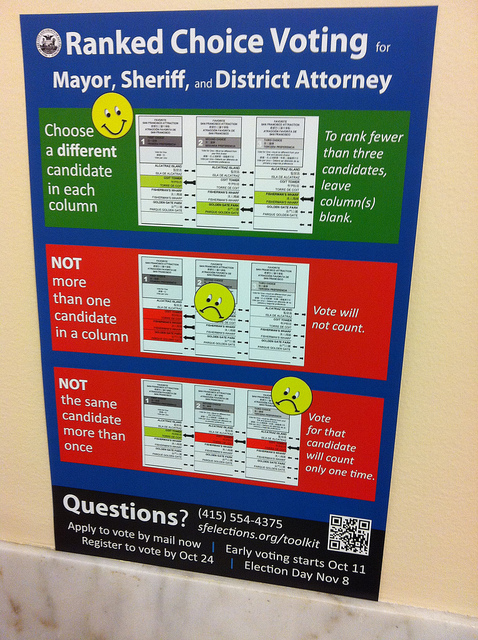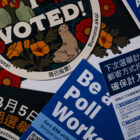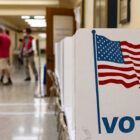UPDATE: This story has been updated to correct the scope of David Chiu’s proposal.
Ranked-choice voting in San Francisco will continue in its original format and any attempts to change it will have to wait until after the November election.
By agreeing to send three proposed alternatives back to the Board of Supervisors Rules Committee on Tuesday, the board assured that all three potential ballot questions posed by supervisors Christina Olague, Mark Farrell and David Chiu wouldn’t make their July 27 deadline for the November ballot.
The board was forced to put the amendments on the backburner by other pressing concerns of the upcoming election season, such as affordable housing, improving city parks and saving the local community college, Olague said.
“The public would benefit from more discussion of the issue,” she said.
The move preserves the current system where voters may select up to three candidates in order of preference. An immediate “runoff” occurs where candidates with the fewest votes are eliminated while second- and third-choice votes are factored in until an office-seeker passes 50 percent.
Chiu, the board’s president, said he was satisfied with postponing the debate, adding “I have thought the current systems that we have are actually working quite well.”
This is the second time this year that Farrell has attempted to place a ballot measure replacing the ordered-preference method when a two-stage election failed to move forward.
“I’m very disappointed,” he said. “But I still feel strongly on what needs to be done.”
After his first plan to abolish ranked-choice voting in all city races stalled in February, Farrell submitted a compromise retaining ranked-choice for supervisorial races and establishing a two-stage election for mayor, sheriff, treasurer and district and city attorneys. His measure also called for a September primary election requiring a 65 percent threshold for outright victory and a November runoff between the top two candidates.
Olague’s amendment limited runoff elections to mayoral races. Chiu’s amendment sought a ranked-choice contest for mayor before a top-two runoff.
Ranked-choice voting advocates applauded the decision. “We consider this a victory,” said Stephen Chessin, president of Californians for Electoral Reform. His group would have favored the Chiu amendment if it had been put on the ballot.
“Obviously, we’d have preferred no changes. We’ll continue to monitor the situation,” he said.
City voters approved of ranked-choice voting in March 2002 and started using this method in 2004. Supporters say the system engages voters and saves the cost of runoff elections. Detractors claim it promotes confusion among voters.










